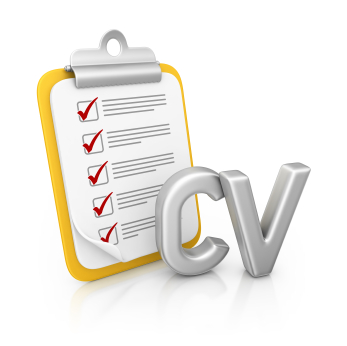A CV or Curriculum Vitae is simply another term for a persons resume’ (or the outline of their education and professional work history). Most of us have put together a CV at some point in our lives, either as part of our education or through professional necessity. Regardless of why you want or need to construct a CV the most important thing is the quality of its construction.
Simply put, a ‘good’ CV should:
- Target specific jobs or duties related to that career
- Quickly and succinctly state your capabilities across as many areas/fields as possible
- Be accurate and feature no glaring grammar or spelling errors
- Paint a positive image of you as a working professional, highlighting your strengths
In other words, if you were applying for different positions with contrasting organizations, you’d want to create separate CV’s for each instance or application. Even if both careers are very similar you shouldn’t simply split the difference between the two and hope for the best. The objective is to pinpoint the skills that specific employers are looking for and present them with your qualifications on a “silver platter”, and in a format that’s quick and easy to grasp, no less. Keep in mind; many hiring agents are very busy individuals who might be responsible for many different duties within a company. They are looking for specific information about you as a potential employee; your job is to make sure that they can access this information with little resistance. Place yourself in their shoes – who would you hire, the person who clearly tells you what they’re capable of, or the one who has imbedded this information amongst non-critical factoids?
Here’s what you should include (in order):
- Personal contact information (phone#, email, address, name, age, date of birth, etc…)
- Education and additional certifications
- Actual work experience (try to relate your duties to skills required by the employer.)
- Additional accomplishments (if for example, you have rescued babies from burning buildings for example, this might greatly reflect on your personal character which could greatly influence a hiring manager’s decision. Also include any activities which are in any way related to what the company does or produces, of course.)
- Skills and Technology-specific skills
- References (generally, this includes at least 2 references, one academic and the other professional, however you might also want to include personal references particularly if you know people in higher positions or offices of power.)
Here are some other things to consider…
Get to the point. There’s no point in detailing every single minor accomplishment you might have ever made; instead, try to focus on your most stunning triumphs. Make sure that your CV isn’t too open or too “cramped”. In other words, make it easy to read in terms of font sizes, paragraph spacing, indentations and so forth. Likewise, print each page on a separate sheet. Try to highlight your strengths and attributes around the middle of the first page if at all possible (because this is the area where most hiring managers’ field of vision tends to “snap” to).







